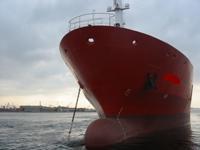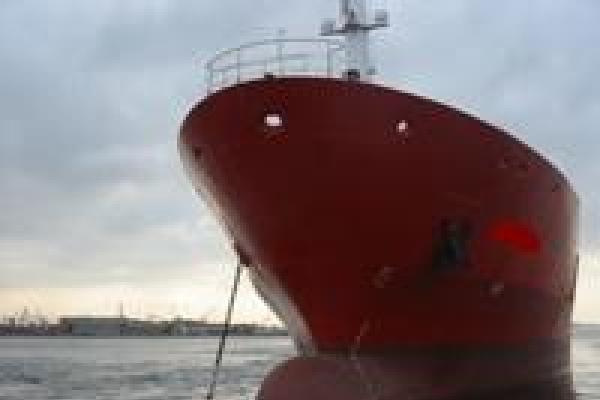
Jamie Taylor
Published: September 01, 2010
Image


In a recent decision before the English High Court, Andrew Smith J considered whether a shipowner was entitled to remuneration outside the scope of a charterparty following the withdrawal of a vessel from charterers’ service due to charterers’ default on hire.
When the M/T “Kos”, a large crude carrier chartered on Shelltime 3 form, was withdrawn from service she was partly loaded with parcels of cargo at Angra dos Reis, Brazil. Andrew Smith J upheld owners’ claim for remuneration on the basis that they had a duty to care for the cargo in their capacity as bailees while the cargo remained on board the vessel. The Judge also held charterers would be liable to pay owners’ expenses incurred during discharge of the cargo. (See earlier website article: Withdrawal of Vessel from Charter – Damages). Charterers appealed the High Court decision.
In the Court of Appeal Longmore LJ agreed with the High Court’s reasoning in rejecting owners’ various arguments advanced under the charterparty. However, he did not agree with Andrew Smith J that owners had a right correlative to their duty as bailee to remuneration.
In the original judgement Andrew Smith J cited authority from two cases: Cargo ex Argos, Gaudet v Brown (1872) LR 5 PC 134 and China Pacific S.A v Food Corporation of India (the “Winson”) [1982] AC 939. Charterers argued that these cases did not assist owners’ arguments.
In Cargo ex Argos, Gaudet v Brown a cargo of petroleum loaded at London and destined for Le Havre could not be discharged due to the Franco-Prussian war. The vessel was subsequently turned away from Le Havre and following failed attempts to discharge at alternative ports along the Normandy coast returned to London for re-delivery to the cargo owner. The Privy Council allowed the shipowner to recover the costs in returning the cargo as, in the absence of any instructions from the cargo owner, the event constituted an agency of necessity derived from an accident or emergency. The expenses incurred in the four days exploring the situation at the alternative ports could not however be claimed as these were done in the interests of both the vessel and the cargo owner.
In the “Winson” there had also been an accident or emergency which meant the Master was an agent of necessity. In this case the vessel had grounded on a reef in the South China Sea resulting in the Master concluding a contract with salvors on Lloyd’s Standard Form of Salvage Agreement. Six parcels of the cargo of wheat were salved and stored in warehouses in Manila at the expense of the salvors. Requests from the salvors to the solicitors for the cargo owners to accept delivery failed to elicit a reply and when the voyage was abandoned cargo owners accepted liability for the storage charges after the charterparty had been terminated. As the Master had concluded the contract with the salvors, the cargo owners attempted to argue that they were not liable for these costs. The House of Lords however disagreed with this line of argument and held the Master as an agent of necessity was authorised to create the agreement with the salvors. On the physical transfer from the vessel to the barges the salvors became the bailees of the cargo and the cargo owners, the bailors.
In the “Kos” charterers argued there was no emergency or accident that created an agency of necessity. The requirement to discharge the cargo was created by owners exercising their right to terminate the charterparty as a consequence of charterers’ default on hire payments. Further, the reason the cargo remained on board for so long was that owners hoped that a new contract, at the more favourable market rate, could be concluded.
Longmore LJ explained that as a general principle of English law, in the absence of an agency of necessity a party on whom a benefit has been conferred is not obliged to pay for the benefit. In the “Kos” Longmore LJ concluded there was no such service. The fact the cargo remained on board acted was leverage to negotiate a new contract at the more favourable market rates: “…in a case which is not one of accident or emergency, there is no obvious injustice in the Charterers’ retaining the (comparatively small) benefit which has only arisen as a result of the Owners’ action in terminating the charter for their own benefit”.
Therefore, where there was no element of accident, emergency or necessity, remuneration which had not been impliedly or expressly agreed could not be due.
The Court of Appeal allowed charterers’ appeal in respect of the US$410,274 hire that accrued during the vessel’s stay of 2.64 days at Angra dos Reis from the date and time of the withdrawal notice to the completion of discharge. The Court of Appeal did, though, award owners the cost of the bunkers consumed during the discharge as expenses on the basis of the “Winson”.
Of the period of 2.64 days that the vessel was at Angra dos Reis, discharge took just 1.29 days. The vessel remained idle for a period of 1.35 days prior to discharge commencing during which both parties explored the possibility of concluding a new contract. Longmore LJ distinguished this period during which the vessel remained idle for the benefit of both parties from that when discharge was in progress and expenses could be recovered.
The Supreme Court decision is discussed in another website article by Jamie Taylor: Charterparty Indemnities – Express or Implied?


